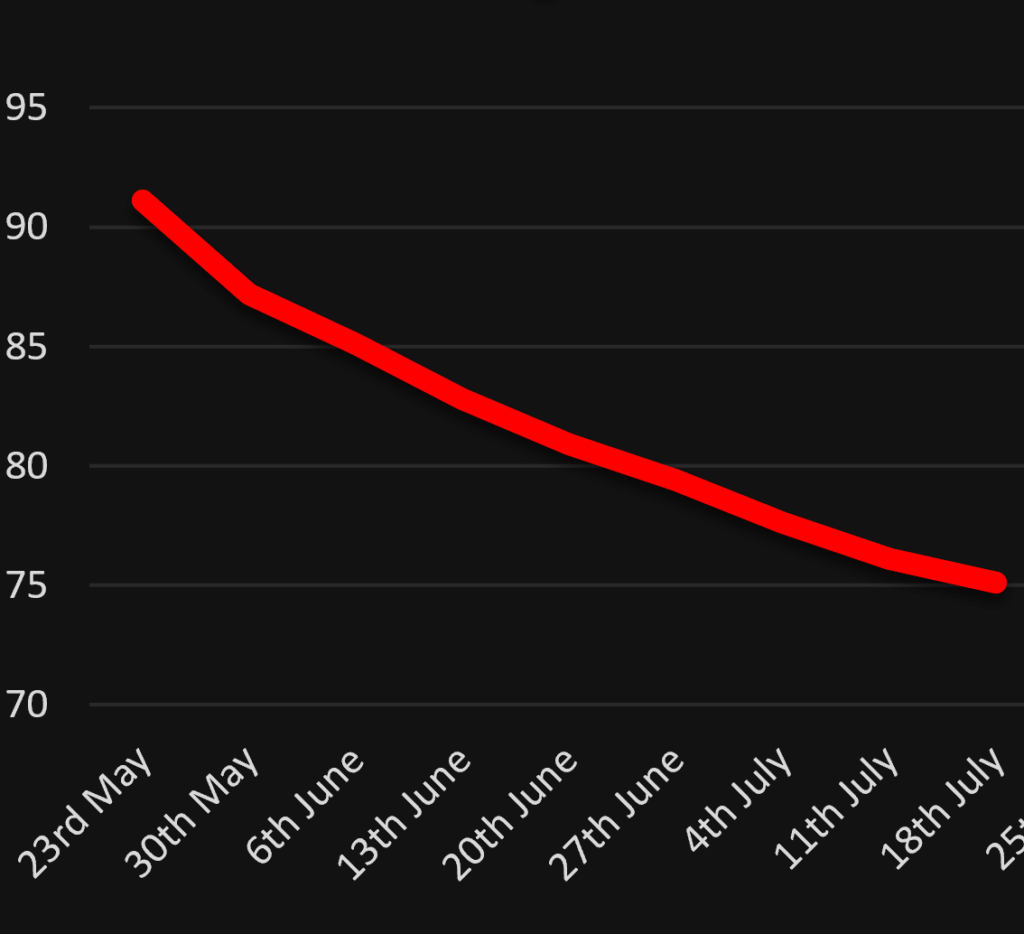Christian arguments
(December 2021)
People don’t agree on everything.

We hear some politicians argue endlessly about the best way to deal with emerging issues. They often operate in the confidence that what they proclaim is current party policy and therefore right. If you don’t agree with them, you don’t understand and are not on the side of the people.
They are the elected majority and therefore right because most people voted for them. MPs may claim to be close to the PM and therefore better informed and empowered.
The majority of the power and influence is probably increasingly controlled by unelected multinational technology conglomerates behind social media platforms etc.
Mathematically I thought 3.14… was infinitely interesting but 3.58 billion people, like me, go round and round in an unbreakable, never ending, click/tap habit controlling them.
I am driven by the need to feel socially connected and like 3.58 billion others, use one of the Facebook family. Are you one of the 3.58 billion monthly users of one of the Facebook family of products: Facebook, Messenger, Instagram, WhatsApp…? I certainly don’t want to miss anything valuable from my own family.
Personal insulting comment during opinionated argument, particularly from people behind a hidden identity, is prevalent online.
What is Facebook’s new parent company ‘Metaverse’ (ancient Greek approximation meta = beyond) going to offer the future? It’s anyone’s guess in terms of technology, artificial intelligence and augmented reality…
Positive metamorphosis?
It is easy to put all politicians behind the same label. ‘Arrogant’ maybe? There is a danger in putting people into identity group labels to manage them in our thinking. I am sure there are many politicians in role that strive to do the best for their constituents.
Single individuals can damage the reputation of the whole group they represent. Are the systems that hold politicians to account working? I’ll £Bank on deciding about that later.
Following horrific tragedy, the family of a highly regarded politician, with “shattered hearts” recently bravely hoped we could, “set aside hatred and work towards togetherness.” Humbling and powerful words of blessing.
Religious leaders don’t agree on everything.

God (not just the PM) has told me, “XYZ” so you must do this because it is what He wants. If you look in the Bible it says, “XYZ” and you are not truly spiritual if you don’t do what He says in verse “XYZ”.
We’re back to shotgun theology experts. As far as I am aware, no one has ever fully understood or connected with God perfectly. However, we must remember that Jesus, “was in very nature God.” (Philippians 2:6)
A minority of religious leaders act as if you should treat them as God’s voice. Some of the harshest words Jesus spoke were to religious leaders.
“Woe to you, teachers of the law and Pharisees, you hypocrites! You give a tenth of your spices– mint, dill and cummin. But you have neglected the more important matters of the law– justice, mercy and faithfulness. You should have practiced the latter, without neglecting the former.” (Matthew 21:23)
When did religious leaders start to use Lessons as Weapons?
In the Bible religious leaders did not treat women with equality. Jesus approached them deliberately and knowledgeably despite any potentially dubious background.
Check out the Woman at the well. (John 4) Women were incredibly significant to his ministry. Better than the men in various ways. My “it’s not for girls” post, and others, take this further.
Previous religious leaders treated those with disabilities such as Lepers badly and enforced rules to discriminate and separate them.
Jesus actually touched and engaged with Lepers. (Mark 1: 40-42)
Jesus healed the lame on the Sabbath. (John 5:1-47)
Jesus was not too busy to respond positively to a father’s desperate plea to heal his dying daughter. (Mark 5:21-43) On His way to heal He was approached and touched by another in need.
God may be busy, but He is there for all with faith (v34) and belief (v36) who reach out to Him irrespective of their starting point. She had no advocate and approached directly and was named the daughter of Jesus. (v34) Many were near Jesus, but she touched Him purposefully, deliberately, faithfully.
What touches us? How do we respond?
Religious leaders may have been put off by Leviticus 15:27. Love is prioritised by Jesus demonstrably and repeatedly.
How many groups do we exclude today? Are we not all equal people before God? We don’t need to dig too deeply into “protected characteristics” within the Equalities Act.
Different religious leaders, Pharisees and Sadducees, were battling to argue that their approach was best. We need teachers of the law to be like Pharisee and Sanhedrin member Nicodemus, who was unlike many of the other feared Jewish leaders. His focus on God took priority over his elevated religious position.
He listened to Jesus (John 3:1-21), put law in the context and view of the accused (John 7:50-51) and worked, with another, for Jesus (John 19:38-40) following crucifixion.
At Advent we are also reminded of the righteousness of priest Zechariah. (Luke 1)
Law needs to be applied as intended. Teachers of the law asked Jesus whether a women caught in adultery should be stoned as per their law. Law needs love at the point of application as demonstrated by Jesus. (John 8:1-11)
Accusers frequently elaborately describe and highlight the sin of another to create some distance between the sinner and their own imaginative immaculate virtue. They often add detail about the effect the sin has on others to justify their harsh response. People act similarly during argument today.
The media often attempt to trap politicians into yes/no responses. Digital thinking in an analogue world again.
His calm words, “Let any one of you who is without sin be the first to throw a stone at her.” (v7) brilliantly blew them away. They departed unable to use their questions to trap him. (v6) Love triumphed. It always should.
He knew all were sinners, including the uncondemed women asked to leave her life of sin. (v11) We too should look at our own sin before focusing on the sin of others.
“You hypocrite, first take the plank out of your own eye, and then you will see clearly to remove the speck from your brother’s eye.” (Matthew 7: 5)
When you point a finger at another, three fingers point back at you.
Religious leaders today can assume they are right and always know best. They have been ordained so only they can… serve communion wine, or bless it for use by extension. etc etc etc.
They act under the authority of the institution of church. They must be right and closer to God than the rest of us. Or are they just closer to upholding tradition and their status within the church institution?
When acting on behalf of an institution, you do need to be authorised by that institution. Basic Quality Assurance, Faithfully Aware. Ordained or otherwise, communion is seriously sacred. (1 Corinthians 11:27-29)
“See to it that no-one takes you captive through hollow and deceptive philosophy, which depends on human tradition and the basic principles of this world rather than on Christ.” (Colossians 2:8)
Does church institution align with God all the time? Do all religious leaders align with their institution? Is their institution always sure of its current position? Sometimes it feels like, jobs for the boys? Boys that have been ordained and therefore specially connected to God.
I think some religious leaders have always felt that to be true of themselves. We can now have reserved church leadership roles for ordained girls too.
“Give me one hundred preachers who fear nothing but sin, and desire nothing but God, and I care not a straw whether they be clergymen or laymen; such alone will shake the gates of hell and set up the kingdom of heaven on Earth.” (John Wesley)
Do religious leaders protect God or their institution by their actions? Do the two always align?
Do we all agree with everything our church denomination plans to do?
“If a house is divided against itself, that house cannot stand.” (Mark 3:25)

What is leadership? What is church leadership? Jesus is a leader, and all Christians must keep our eyes on Him and follow Him if we want to travel in the same direction together.

When we talk of church leadership, we often mean leadership in terms of status within an organisation. All Christians are leaders, called to lead others to Christ.
Should some people be rejected from church leadership because of sin? Which sin? Are we not all sinners?
How do we decide what’s in the list of sins that prevent people from taking a lead in part of a church service or activity? What does any such list convey to others about God?
Should church leaders only be allowed up front if their sin is hidden? Would we allow Mary Magdalene or Saul/Paul to serve in our church community? “The Chosen,” represents His followers as realistically human. As does the scripture.
The Bible is not predominantly about supernatural people, which I’m not. It’s a book filled full of real people with real problems and failures, discovering that God is real too. Really!
There is a breakdown in trust when religious leaders say one thing to one person and a different thing to others. I know that context and management of truth is important.
Nonetheless, lack of consistency is contrary to the way of life Christ demonstrated.
“Jesus had given them a good answer, he asked him, Of all the commandments, which is the most important? The most important one, answered Jesus, is this: ‘Hear, O Israel, the Lord our God, the Lord is one. Love the Lord your God with all your heart and with all your soul and with all your mind and with all your strength.” (Mark 12:28-31) c.f. Deuteronomy 6:4-7
When Christians and religious leaders act in a manner we feel to be without love, it influences others. How does God feel? Forgiveness? Is our response as loving as His?
We often expect too much from other Christians and church leaders based on what they say they believe. Faith is harder to live out than it is to explain.
Personal needs can get in the way for everyone, but when those in church leadership are two faced, it can be shocking and hurtful. But they are people like everyone else.
Should we be surprised when, sometimes, the secular seem to serve our sacred God superbly. This can be evident in the way they treat others and value His creation.
“For by him all things were created: things in heaven and on earth, visible and invisible, whether thrones or powers or rulers or authorities; all things were created by him and for him.” (Colossians 1:16)
Are Christians COP? (Irish approximate meaning = good/shrewd.) Do Christian denominations cooperate together effectively in Conference Of Parties despite differences?
Are our expectations of others, and self, realistic?
“Each of you should look not only to your own interests, but also to the interests of others.” (Philippians 2:4)

Christians don’t agree on everything.
When someone told me their position in a discussion about same sex marriage in church, they expected a reaction from me.
They may currently have a different view to me, but I believe that because no-one is perfect, we individually must sort it out to the best of our ability based on our relationship with Him and our understanding of how to apply the big picture of His Word for ourselves.
The Living in Love and Faith Book, from Church House publishing, “tackles the tough questions and the divisions among Christians about what it means to be holy in a society in which understandings and practices of gender, sexuality and marriage continue to change.”
“Finally, all of you, live in harmony with one another; be sympathetic, love as brothers, be compassionate and humble.” (1 Peter 3:8)
No-one is perfect, so how can I assume I’m right? I’ve repeatedly expressed my view that the checksum of His law during debate should be, does this approach show love to God and love to our neighbours, whoever they might be?
“The second is this: ‘Love your neighbour as yourself.’ There is no commandment greater than these.” (Mark 12:28-31)
Sometimes we might sound the same as one another but come from a different understanding entirely based on our interpretation of the religious language used.
Language in any context can easily miscommunicate what was intended. English ‘floor’ and ‘flaw’ may sound the same. One is grounded, the other will mar, weaken, or invalidate the truth.
Christians need to focus more on communion with one body and not on labels defining difference within the church.
Difference can be advantageous rather than a weakness if managed by leaders traveling in the same direction with Christ. Different individual strengths make teams stronger and more inclusive in their actions. We need to manage weaknesses sensitively; we all have them.
“What causes fights and quarrels among you? Don’t they come from your desires that battle within you? You want something but don’t get it. You kill and covet, but you cannot have what you want. You quarrel and fight. You do not have, because you do not ask God.” (James 4:1-2)
Damaging lack of agreement
Statistically, attendance and membership of the Christian Church has been a declining trend since the mid 80s. Amazingly, church involvement in social enterprise, such as food banks, has increased during the same period.
The argumentative, indignant, and self-righteous style of many Christians was responded to by a friend who told me that this sort of behaviour was how they were brought up and it made them just switch off.
Argument can get us into dire straits -bad situations with the best player out of the game. Sin separates us from God. Garden of Eden beginnings can start well.
The Dire Straits I was into, in my youth, sang about the very start of the ever expanding ‘Telegraph Road’ with, “Then came the churches, then came the schools. Then came the lawyers, then came the rules…”
Starting points can provide firm foundations, unless we spoil them.
Early roots in Church, School and Household have been the foundation of faith for many people, for many years. There is huge influence in the places they intersect.
These foundational roots are no longer a part of life for many children in our changing society. We need a new approach to ensure that all know of the love that God has for everyone in the here and now.
In church or Christian community, what is our motivation? Is it love-led, or results-led? (Lectio 365 28 Oct)
There are many preferred approaches and denominations of church. But we are together, in unity despite our differences.
“For we were all baptised by one Spirit into one body– whether Jews or Greeks, slave or free– and we were all given the one Spirit to drink.” (1 Corinthians 12:13)
I love the focus on this togetherness and unity in organisations such as Churches together in England.
I may no longer have any formal connection with the Church of England but their approach “Growing Faith” is a great foundational church, school and household response for children.
“Faith at home” further seeks to support the development and pastoral care of children and young people. It is worth reading, “A vision for the Church of England in the 2020s”

Faith is a journey through life, not a journey to the front of a church for a short prayer or formalised ‘I believe’, ‘I accept’ statements. It’s not just about membership and regular church attendance either.
Faith is 24/7 not an hour per week. Sometimes we focus on church attendance rather than relationship. Relationship > Religion.
My hope is that those who approach Christian community will not be put off by our arguments, but want to find their home with the family of God.
Back to Dire Straits, ‘Telegraph Road.’ “And the other travellers came walking down the track. And they never went further, no they never went back.”
May church be similarly attractive and not allow itself to be spoiled.
Sadly, ‘Telegraph Road’ concludes with, “I’ve seen desperation explode into flames. And I don’t want to see it again. From all of these signs saying ‘Sorry, but we’re closed’, All the way down the Telegraph Road.“
Many church leaders and Christians achieve amazing works for God. Often unseen. We need to focus on this testimony rather than judge the whole group by a struggling minority.
Argument, desperation, difference and disagreement are more visible and newsworthy than the positive and good enterprises. The visible can be a switch off for people, like my friend.
Should share our complaints, concerns and theological argument with God directly? Surely not. But, yes, I think we should.
In prayer God values our honesty. He knows how we feel about things anyway. We can’t be two faced with Him. If you think God should be more active and present, tell him. If you’re listening, He might want your involvement in His loving response.
Talk and listen for an effective communication system. On ‘Telegraph Road’ there can be, “6 Lanes of traffic, 3 lanes moving slow.“
I’ve mentioned Job’s discussion and confusion with God the Father in previous posts. For more exemplification, checkout the whole book of Habakkuk which even starts with impatient confused complaint. (Habakkuk 1:1-3)

Christmas Message

The star remains at the top of a Christmas Tree. We should follow the light to look for Jesus and travel toward Him to serve, as exemplified by the wise men at Christmas.
We should not argue about the best decorations around the tree. The fairy lights are distracting. The deposited pine needles are damaging. What is (at) the point of the tree? What are we distracted by? How damaging is this?
My prayer. “Forgive me when my posts show allegiance to anything other than the cross, or suggest that my image and reputation are more valuable than my allegiance to you. Give me courage and joy to understand who you are to me and be with me so that I might live this out demonstrably.” (Lectio 365)
My hope for Christians this Christmas is that we can all set aside our differences and turn to keep our eyes on his light so that we travel together as one body, in the same direction, at His lead. Emmanuel-Hesed
“Now all has been heard; here is the conclusion of the matter: Fear God and keep his commandments, for this is the whole duty of man.” (Ecclesiastes 12:13)


















